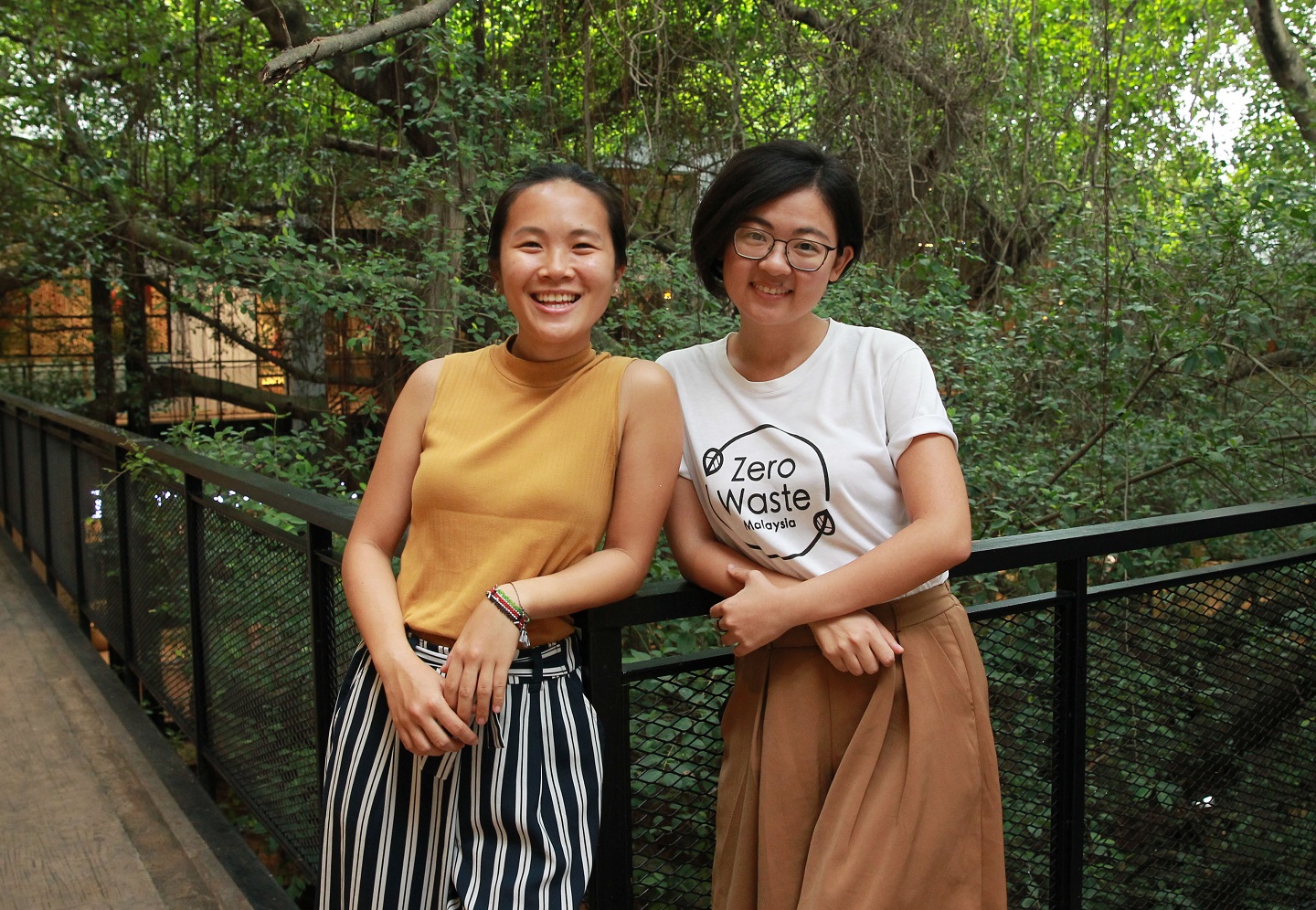
Khor(left) and Tin started their zero-waste journey in 2016 (Photo: Shahrin Yahya/The Edge)
It has been 3½ years since Zero Waste Malaysia founders Aurora Tin and Khor Sue Yee decided to call it quits with single-use plastic and instead, pursue an environmentally conscious lifestyle that creates as little waste as possible.
To them, these measures are necessary because at this point in time, our ecosystem is at its most unpredictable, dangerous and disastrous. In a world where pollution and contamination are left rampant and unchecked, it is the environment that pays the price for human ignorance. It is good news, then, that a growing number of people are trying to reverse the effects of unbridled pollution. But here in Malaysia, the movement is just beginning.
“I realised that Malaysians are actually aware of the degradation of our environment, yet we do not know what we can do as individuals,” says Tin, a former journalist who focused on environmental reporting. Since the beginning of 2016, through trial and error, she has successfully reduced her waste from what would have been one tonne (for the average Malaysian) to a measly 100g a year.
26239389_10155767243953673_2238855703035765169_n.jpg
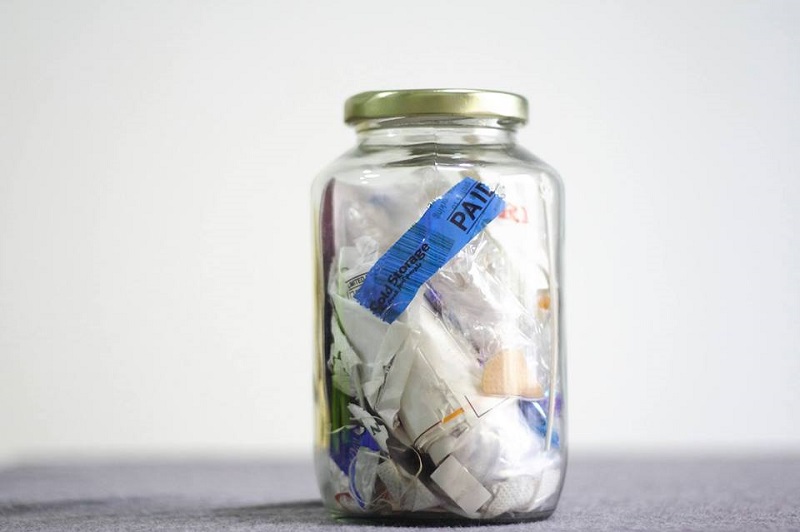
“People do not believe that we can in fact make a difference. But if everyone does their part, imagine how much we can change,” she exclaims.
Prior to the formation of Zero Waste Malaysia, the pair got acquainted through Instagram after Tin commented on one of Khor’s photographs. “We were both struggling to find a community that practised the lifestyle in Malaysia, so Aurora created a Facebook group for us to share our tips and tricks,” explains Khor, a technical engineer formerly based in Beijing. She, too, started her zero-waste journey in early 2016 after being inspired by a TED Talk presented by environmental activist Lauren Singer.
“The talk triggered my first step to live more consciously, mindfully and sustainably,” she says.
When Khor returned home for good, the duo met up, shook hands and decided to run the group together.
20190107_peo_zero_waste_4_msy.jpg
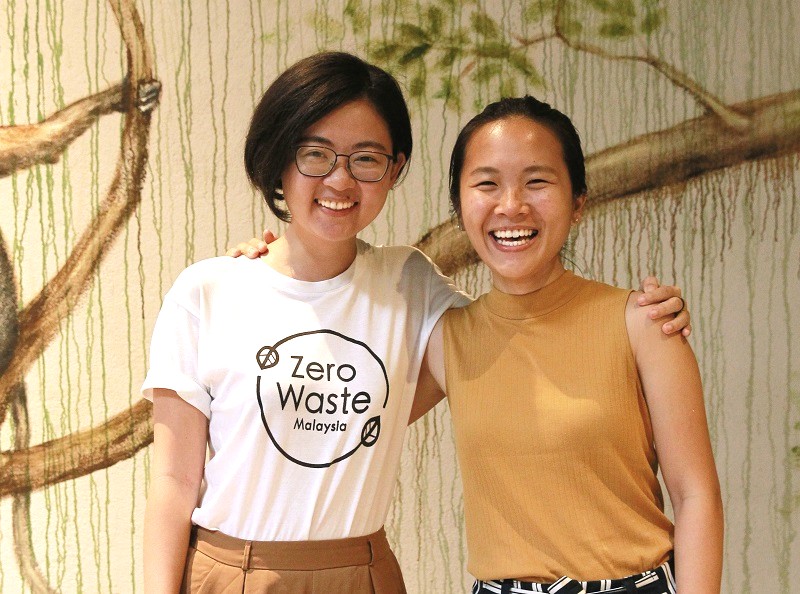
The small community Facebook group suggests alternatives for single-use items, places that allow product refills without extra packaging, and provides ideas on how to reuse, retrofit and upcycle old items. As the group grew, Tin and Khor organised small-scale events for members to take part in, such as going on night market and picnic trips without using single-use plastic and a documentary screening of Craig Leeson’s A Plastic Ocean.
Zero Waste Malaysia became the place for Malaysians to obtain relevant resources to sustain a trash-free lifestyle. But the group only truly took off when Tin and Khor invited Bea Johnson, the founder of the global zero-waste movement, to be a guest speaker at their inaugural Zero Waste Festival in May 2017.
“We knew that Bea Johnson was coming to Asia,” says Tin. “We approached her team and asked if they would like to come to Malaysia, and she said yes! Because of this, we organised our first zero-waste festival and it was a success.”
Best known for her 5R methodology — Refuse, Reduce, Reuse, Recycle and Rot (only to be practised in that order) — Johnson was a household name that attracted plenty of media coverage, and the group saw a spike in followers.
Three years down the road, what started off as a passion project eventually evolved into a non-profit organisation fuelled by fervent volunteers eager to spread awareness of living sustainably and creating less waste.
zwm_group.jpg
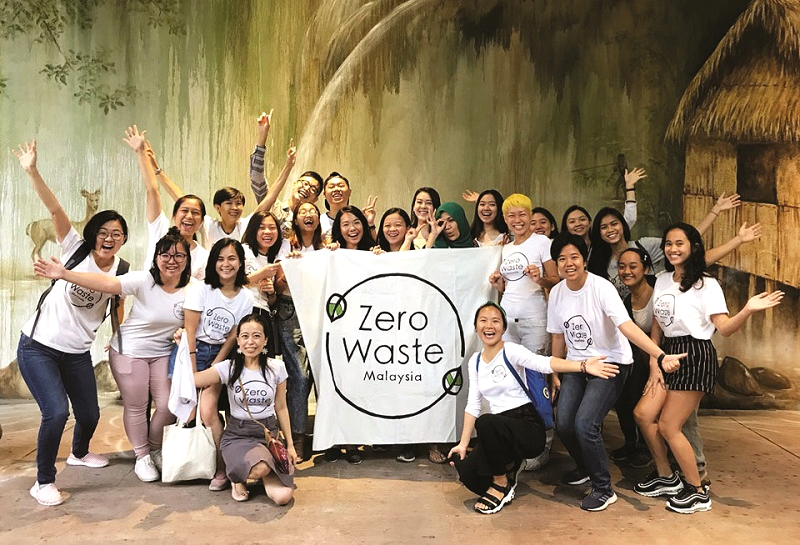
Zero Waste Malaysia now boasts more than 30,000 active followers across all social media platforms (at the time of writing) and welcomes around 1,000 newcomers each month. Its founders have also set up a website with a trove of resources, including a map locating over 500 organisations and shops nationwide that provide zero-waste solutions.
But Tin and Khor’s efforts did not stop there. The power duo wanted to take the movement a step beyond individual change.
Last month, the second Zero Waste Festival was held at the nature-inspired The LINC KL mall in Jalan Tun Razak. This time round, they targetted commercial businesses and stakeholders, inviting hotel and restaurant owners as well as zero-waste movement pioneers from Southeast Asia for a two-day forum.
“For the first three years, we worked on informing individuals about the lifestyle,” shares Tin. “Starting this year, we are focusing on providing consultancy services to business and industrial owners to start reducing their waste.
dsc_0667_1.jpg
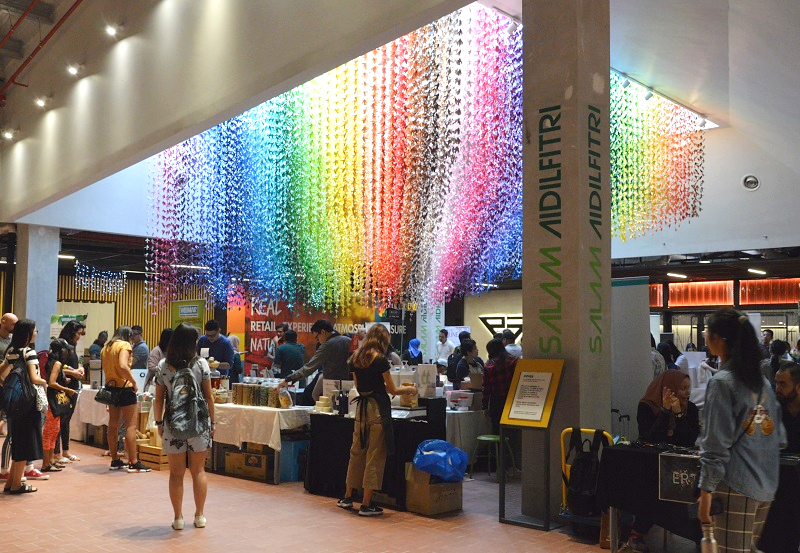
“We did not invite a lot of vendors because we wanted to focus on business solutions. I can understand that some participants might have been disappointed because there were not many food or daily household products to buy.”
Instead, the festival hosted water filtration and composting showcases, organic fruit and vegetable suppliers as well as industry speakers examining the viability of a circular economy.
“We are glad that many are aware of reducing their waste on a personal level, but if it is practised at an organisational level, Malaysia’s waste can be reduced tenfold,” says Khor.
Resolute, Tin interjects, “Our intentions are very clear, our purpose is very clear — we want to change the industry.”
During the festival’s opening speech, Tin and Khor, clad in white logo-printed shirts, launched Zero Waste Malaysia’s newest projects — a speaker team focusing on informing people about the zero-waste lifestyle, a trilingual handbook for those who want to organise their own zero-waste events and a new certification system that evaluates sustainable businesses — in the presence of Hartini Mohd Nasir, undersecretary of the Eco-innovation Division of the Ministry of Energy, Science, Technology, Environment and Climate Change, along with other organisations and entities.
dsc_0743_2.jpg
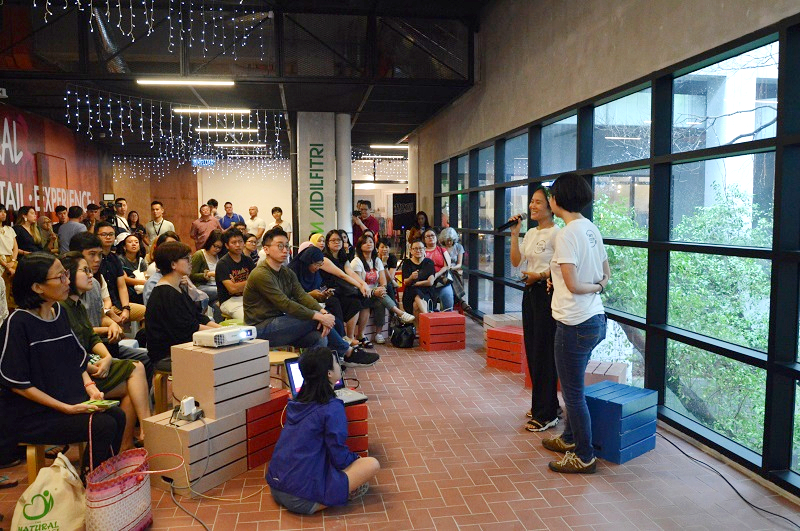
“We wanted a governmental representative to be there so he or she could hear and see for himself or herself what the community is doing and witness how some businesses are trying their best to make a change,” explains Tin.
“We took them on a tour around the zero-waste showcase and they were pleasantly surprised to see local vendors doing something to tackle environmental issues,” Khor chimes in.
When asked about the struggles they have had up to this point, the pair reply in a low voice. “We are run by volunteers and that is our struggle. We are not getting paid and most of us have full-time jobs and commitments, but we manage,” says Khor.
“We are running on passion. We are trying to find income by launching the speaker team and certification in the hope that we can hire professionals to run the movement systematically in a more efficient way,” Tin says.
But as quickly as her frown settles in, Tin’s face brightens up with hope when asked about their plans for Zero Waste Malaysia. “In the next five years, I hope we get to a point where we are qualified and credible enough to talk to the government. I hope our suggestions will be worth their time and they will be willing to work with us.”
Tin and Khor are not concerned about Malaysia’s adaptability to a more sustainable lifestyle. With the Selangor government enforcing a ban on single-use plastics at all eateries and government buildings in the state, the duo are hopeful that eventually, all Malaysians will rethink their consumerism habits and be aware of their significant roles in making the planet green again.
This article first appeared on July 22, 2019 in The Edge Malaysia.


